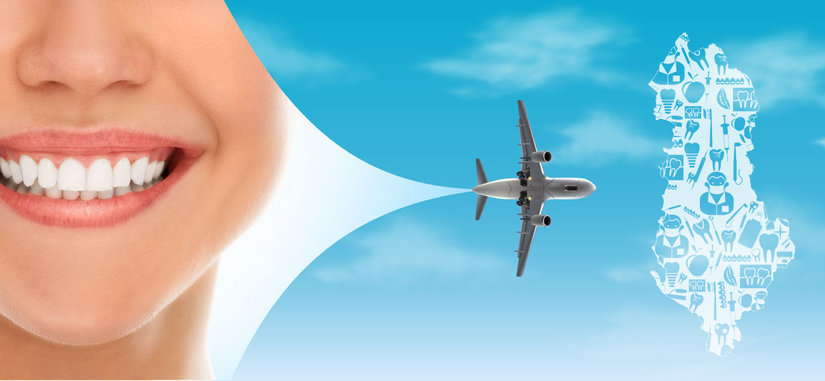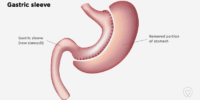Dental Tourism: Saving Money On Dental Procedures Abroad

Are you tired of the high cost of dental procedures in your home country? Dental tourism may be the solution you’ve been looking for. By traveling abroad for dental work, you can save money while still receiving high-quality care.
Dental tourism involves traveling to another country to receive dental procedures. This practice has become increasingly popular in recent years as more and more people are seeking affordable options for dental care. Whether you need a routine cleaning or a more complex procedure, dental tourism can offer significant savings without sacrificing quality.
In this article, we will explore the benefits of dental tourism, popular destinations, and tips for planning your trip.
Key Takeaways
- Dental tourism involves traveling to another country for dental procedures to save money while still receiving high-quality care.
- Popular dental tourism destinations include Mexico, Costa Rica, Thailand, and Hungary.
- Risks and considerations involved in receiving dental treatment in a foreign country include language barriers, varying standards for dental care between countries, and potential stress or discomfort from traveling for dental treatment.
- Before making any decisions, do your research and check the qualifications of the dental clinic and the dentists who work there, and ensure proper licensing and accreditation is in place.
What is Dental Tourism?
Looking to save money on dental procedures? Consider dental tourism – traveling abroad for dental care!
Dental tourism is a growing trend where people travel to other countries to receive dental treatment at a lower cost. This can include everything from routine procedures such as cleanings and fillings to more complex treatments such as implants and orthodontics.
The main reason people choose dental tourism is the cost savings. Dental care in other countries can be significantly cheaper than in your home country, even when you factor in the cost of travel and accommodation. This is because other countries have lower operating costs, which means that dentists can offer their services at a lower price.
In addition, some countries offer tax incentives to dentists who work with foreign patients, which further reduces the cost.
Why Choose Dental Tourism?
You’ll discover countless reasons to opt for dental tourism. The most obvious one is the potential for significant cost savings. Dental procedures can be incredibly expensive in some countries, but by traveling abroad, you can often find the same quality of care at a fraction of the cost. This is particularly true for cosmetic dentistry procedures, which aren’t covered by insurance and can be prohibitively expensive in many countries.
But cost savings aren’t the only reason to choose dental tourism. Many people also find that they receive better quality care abroad. This is because many countries have highly trained dental professionals who’re able to offer cutting-edge treatments that may not yet be available in your home country.
Additionally, many dental tourism destinations offer a relaxing vacation-like atmosphere, which can help to reduce anxiety and make the dental experience more enjoyable overall.
Popular Dental Tourism Destinations
One option for those seeking affordable and high-quality dental care is to consider popular destinations that specialize in dental services. These destinations have become popular among dental tourists because they offer a variety of services at a fraction of the cost compared to their home countries.
Here are some of the popular dental tourism destinations:
- Mexico: With its proximity to the United States, Mexico has become a top destination for Americans seeking dental care. The country offers a wide range of dental services, such as implants, cosmetic dentistry, and root canals, at a fraction of the cost.
- Costa Rica: Costa Rica is another popular destination for dental tourists because of its high-quality dental care and affordable prices. The country has a strong reputation for its dental services, and many clinics offer state-of-the-art equipment and technology.
- Thailand: Thailand is a popular destination for dental tourists because of its affordable prices and high-quality dental care. The country has a reputation for offering a variety of dental services, such as implants, veneers, and teeth whitening, at a fraction of the cost compared to other countries.
Finding the Right Dental Clinic Abroad
Make sure you choose the right dental clinic abroad to ensure a stress-free and successful experience for your dental needs.
Before making any decisions, do your research and check the qualifications of the dental clinic and the dentists who work there.
Look for reviews and testimonials from previous patients to get an idea of their experience and satisfaction with the clinic.
It’s also important to check the hygiene standards and equipment used at the dental clinic.
Make sure they follow proper sterilization and infection control protocols to ensure your safety.
Additionally, consider the location and accessibility of the clinic, as well as the cost of the dental procedures.
By taking the time to carefully choose the right dental clinic, you can have peace of mind and confidence in the care you receive while saving money on your dental procedures abroad.
Planning Your Dental Tourism Trip
When planning your trip for dental care in a foreign country, there are several factors to consider. First, you need to decide on the destination country. Some of the most popular destinations for dental tourism include Mexico, Costa Rica, Thailand, and Hungary.
Secondly, you need to research and choose a reputable dental clinic that offers affordable prices and high-quality treatments.
Thirdly, you need to plan your travel arrangements, such as flights, accommodations, and transportation.
Fourthly, you may need to obtain a visa or any necessary travel documents for your chosen destination country.
Lastly, you need to prepare for any language barriers by either learning some basic phrases or hiring a translator.
Once you have considered these factors and planned your trip accordingly, you can enjoy the benefits of dental tourism. Not only can you save money on expensive dental procedures, but you can also explore a new country and culture. Dental tourism allows you to combine your dental care needs with an exciting travel experience, making it a win-win situation. So, start planning your dental tourism trip today and experience the benefits for yourself!
Preparing for Your Dental Procedure
Before you head to your destination, it’s important to take care of yourself by following the pre-procedure instructions provided by your dentist. These instructions may include specific guidelines on what to eat or drink before the procedure, as well as any medication you may need to take beforehand. It’s important to follow these instructions carefully to ensure a successful procedure and minimize any potential risks or complications.
In addition to following your dentist’s pre-procedure instructions, you should also prepare yourself mentally and emotionally for the procedure. This may involve doing research on the procedure and what to expect, as well as talking to your dentist about any concerns or questions you may have. By taking these steps, you can feel confident and prepared for your dental procedure abroad.
| Pre-Procedure Checklist | Importance | |||
|---|---|---|---|---|
| Follow pre-procedure instructions | Minimize risks and complications | |||
| Research the procedure | Understand what to expect | |||
| Talk to your dentist | Address any concerns or questions | Arrange for transportation and accommodations | Ensure a stress-free experience |
Post-Procedure Care
Now that you’ve successfully completed your dental procedure abroad, it’s time to focus on the post-procedure care. This is an essential part of the process that will help you recover quickly and prevent any complications. You must follow the instructions given by your dentist carefully to ensure that your recovery is smooth and pain-free.
Post-procedure care involves taking care of your oral health, managing any pain or discomfort, and watching out for any signs of infection. Your dentist will provide you with instructions on how to clean your teeth and gums, what to eat, and what to avoid.
You may also be prescribed pain medications or antibiotics to prevent infection. It’s essential to take these medications as directed and report any adverse side effects to your dentist. By following these instructions, you can have a speedy recovery and enjoy your newly restored smile.
Risks and Considerations
It’s important to be aware of the risks and considerations involved in receiving dental treatment in a foreign country. While dental tourism can offer significant cost savings, there are potential drawbacks to consider.
Here are some risks and considerations to keep in mind:
- Language barriers may make it difficult to communicate effectively with your dentist, especially if you have concerns or questions about your treatment.
- Standards for dental care may vary between countries, so it’s important to research the qualifications and experience of your potential dentist to ensure that they are properly trained and licensed.
- Traveling for dental treatment may be stressful or uncomfortable, especially if you are recovering from a procedure. It’s important to plan your trip carefully and ensure that you have access to any necessary accommodations or medical care.
By being aware of these risks and taking appropriate precautions, you can make an informed decision about whether dental tourism is right for you. Remember, your dental health is important, and it’s always worth taking the time to ensure that you receive safe, high-quality care.
Frequently Asked Questions
Are there any legal or liability issues to consider when getting dental work done abroad?
When getting dental work done abroad, it’s important to research the legal and liability issues. You may not have the same protections as in your home country. Make sure to understand the risks before making a decision.
Can I use my dental insurance to cover procedures done abroad?
You should check with your dental insurance provider to see if they cover procedures done abroad. Some plans may have restrictions or limitations, so it’s important to verify before seeking treatment.
How do I communicate with the dental staff if there is a language barrier?
If there is a language barrier with dental staff, use visual aids like pointing to your teeth to communicate. You can also research common dental terms in the local language or bring a translator.
Are there any cultural differences I should be aware of before getting dental work done abroad?
Before getting dental work done abroad, be aware of cultural differences. Different countries may have different dental practices, communication styles, and attitudes towards dental care. Research and prepare to avoid misunderstandings and ensure a successful dental experience.
What happens if I experience complications or dissatisfaction with the dental work done abroad?
If you experience complications or dissatisfaction with dental work done abroad, contact the dental clinic immediately. They may offer to fix the issue or provide a refund. Keep all documentation and seek legal advice if necessary.
Conclusion
So, you’ve learned about dental tourism and how it can save you money on dental procedures abroad. But before you jet off to your destination of choice, there are a few things to consider.
Firstly, it’s important to thoroughly research and choose a reputable dental clinic abroad. Look for reviews from other patients and make sure the clinic is properly licensed and accredited.
Secondly, make sure to plan your trip carefully, including arranging transportation and accommodations.
And finally, be aware of any potential risks and complications associated with dental procedures, and make sure to follow proper post-procedure care instructions.
Overall, dental tourism can be a great option for those looking to save money on dental procedures, but it’s important to do your due diligence and be prepared for the process. With proper planning and care, you can have a successful and cost-effective dental tourism experience.








